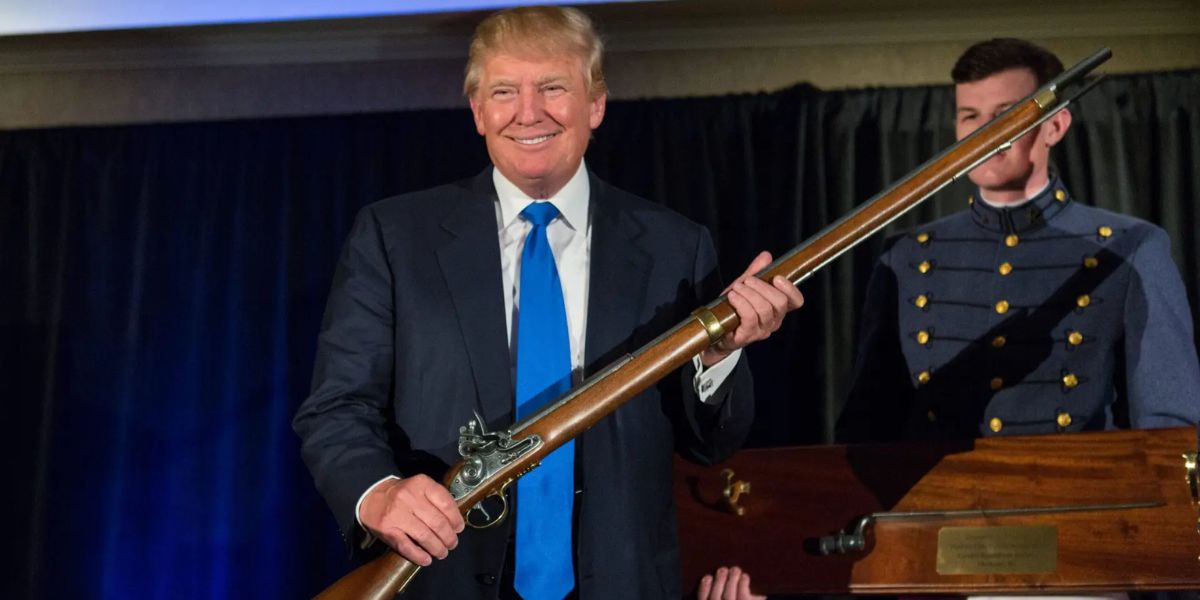In a sweeping move coinciding with Independence Day, the Trump administration has finalized a rollback of more than 50 federal firearms regulations, marking one of the most significant deregulatory efforts in modern U.S. gun policy.
The changes, executed in partnership with the Bureau of Alcohol, Tobacco, Firearms and Explosives (ATF) and a little-known task force called the Department of Government Efficiency (DOGE), aim to dramatically expand access to firearms while dismantling decades of federal oversight.
A Celebrated Shift for Gun Rights Advocates
The rule changes—many of which took effect just before or on July 4—have been hailed by Second Amendment proponents as a major victory.
The Trump-aligned DOGE task force, formed after the 2024 election, had been quietly reviewing thousands of federal regulatory codes with a mandate to cut what they deemed “redundant, overreaching, or unconstitutional firearm controls.”
Among the rules eliminated are those that required:
- Lengthy background check procedures for certain gun accessories
- Annual reporting for gun dealers who sell more than five firearms in a week
- Storage mandates for licensed dealers in states without their own laws
- Restrictions on the resale of imported firearms and antique weapons
- Reporting requirements on multiple handgun sales
The DOGE task force claimed that the reforms restore “individual freedoms curtailed by bureaucratic sprawl” and are part of a larger effort to “make government smaller, faster, and more constitutional.”
Critics Sound the Alarm
Gun safety organizations, Democratic lawmakers, and several law enforcement groups have responded with alarm. They argue that the mass rollback of gun regulations undermines public safety and was rushed through with minimal public input.
“This isn’t government efficiency—it’s deregulation at the expense of lives,” said Shannon Watts, founder of Moms Demand Action. “Removing safeguards that help keep guns out of dangerous hands is not how we honor American independence—it’s how we put American lives at risk.”
Several watchdog groups have also criticized the transparency of the process. Unlike traditional rule changes that undergo months of public comment, many of these rollbacks were packaged under a broader executive action framework and fast-tracked by DOGE.
ATF’s Role Under Scrutiny
The ATF, once a central enforcer of gun regulations, has seen its role significantly transformed under this new mandate. The agency’s internal reorganization, spearheaded by DOGE operatives, involves reassigning personnel away from compliance audits and shifting focus toward “voluntary industry partnerships” with gun manufacturers.
Former ATF officials have warned that the agency is being politically neutered. “This isn’t reform—it’s a dismantling,” said one retired official on the condition of anonymity. “We’re not just loosening the rules. We’re removing the referee.”
The Politics of Timing
The timing of the move—landing squarely on July 4—is no accident. Trump has frequently tied gun rights to patriotic symbolism, and the announcement was made during a nationally televised “Independence & Firearms Freedom” rally in Georgia.
“Today, we declare independence from the gun-grabbing deep state,” Trump told the crowd. “We are restoring the Second Amendment to its full glory—no exceptions, no apologies.”
What It Means Going Forward
While the new rules are already in effect, legal challenges are expected. Multiple state attorneys general are reviewing their options, and several Democratic governors have signaled plans to strengthen state-level firearm controls in response.
Meanwhile, gun dealers and manufacturers are adjusting quickly. Many are already rolling out new product lines and advertising campaigns touting “freedom-enhanced” purchasing options under the loosened regulations.
A Divided Nation, Again
This massive deregulation effort has reignited the nation’s deeply polarized gun debate. For supporters, it’s a long-overdue correction to what they see as years of government overreach. For opponents, it’s a dangerous gamble with American lives.
As the fireworks fade from another Fourth of July, the lasting effects of these changes—on communities, courts, and future administrations—are only just beginning to unfold.




